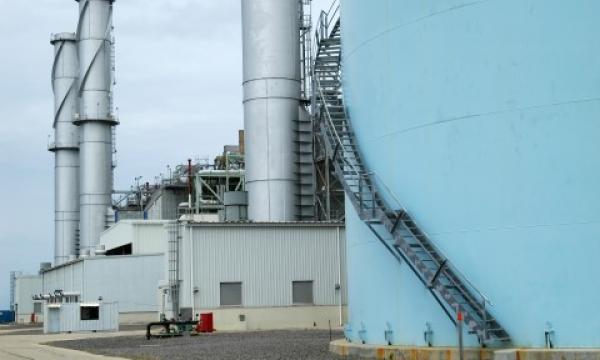Last week, Myanmar officials wore big smiles at the official launch of the Thilawa Special Economic Zone.
They were jubilant that, at last, the nation has its first international-standard SEZ, equipped with all the infrastructure a major business needs – electricity, water supply and port facilities. The project is a joint endeavour, and much of the credit must go to the three Japanese business groups involved – Sumitomo, Marubeni and Mitsubishi.
The first phase has attracted 44 foreign companies. Among them is Millcon Steel, whose chief executive Sithichai Leesawaditrakul joined a recent Bangkok conference to share his experience of setting up a steel plant in Thilawa. He made the decision based on the huge demand for steel in the construction industry. Yangon has a mere 1 million square feet of office space against a demand of 10 million. The country’s steel consumption is only about 30kg per head per year, against 100kg in Thailand.
Sithichai was confident the plant would be a success once Millcon met the initial requirements of a permit to invest in Thilawa, a building permit with environmental impact assessment study and the import licence.
The foundation work eventually started in June. Yet due to a shortage of equipment, the construction was costly: Bt22,000 per square metre against Bt8,500 in Thailand. Millcon decided to bring in its own equipment, which is now generating extra income for the company by being loaned out to other firms in the SEZ. Another headache concerned a shortage of skilled labour. As a result, Some jobs require three times the normal number of workers, which raises the cumulative wage bill, despite the low minimum wage. Millcon addressed this by training Myanmar nationals working at its facilities in Thailand who wanted to return home.
“The one-stop service centre is not quite what the name indicates,” Sithichai said of the SEZ’s advertised advantages. “The key is you must have all necessary licences.”
Despite the challenges, he sees success ahead. He reckons any foreign business can succeed in Myanmar if it has strong commitment; conducts a thorough feasibility study covering business, market and culture; finds good local partners (suppliers and logistics) who share the long-term commitment; and is prepared in terms of finance, know-how and human resources.
Confirming the bright outlook was Kanet Buranasin, the manager of Bangkok Bank’s Myanmar branch. He foresees a more robust financial market as rules and regulations are constantly improved. Authorities will soon publish official kyat exchange rates for the baht and Malaysia’s ringgit, joining the US dollar, euro and Singapore dollar.
Myanmar’s deposit to GDP ratio is now only about 20 per cent, against nearly 100 per cent in Thailand.
“People say that Kyat banknotes are dirty. It’s not like that. Most people still don’t trust banks so they keep their money at home, prey to ants and other insects. Few people use cheques as defaulting is not yet a criminal felony,” Kanet said.
Seeing huge potential, Bangkok Bank is investing US$200 million in the new branch.
Dubbed the world’s last business frontier, Myanmar is attracting massive investment. Top executives at international companies echoed that view at the recent Myanmar Global Investment Forum in Nay Pyi Taw. Despite doubts over the political scene pending the results of November’s election, Myanmar officials told the forum that FDI would continue to grow in years to come.
Yet they say the huge opportunities – particularly in the energy, construction and consumer sectors – will come with challenges for the incoming businesses.
To draw more foreign direct investment needed to create jobs, Myanmar’s government has for the last three years been making efforts to forge a better business climate by easing restrictions and modernising rules and regulations, as it seeks to catch up with other nine countries in the Association of Southeast Asian Nations (Asean).
The country still lags its regional neighbours in several areas, despite its abundant resources and strategic geographical location.
Myanmar ranks 177th among 189 countries for ease of doing business, according to the World Bank. Notably, Singapore tops the table, while neighbouring Thailand is 26th. Myanmar is ranked behind even Laos (148th), a landlocked country whose population is less than one fifth that of Myanmar’s. It is also at the bottom of the rankings when it comes to starting a business.
This month’s Fraser Institute Economic Freedom Ranking places Myanmar 146th among 157 economies, the lowest among Asean nations. Singapore is ranked second.
The ranking uses five indicators – size of government (public spending and taxation); law system and security of property rights; access to sound money; freedom to trade internationally; and regulation of credit, labour and business – to rate economic freedom according to individuals’ access to voluntary transactions, freedom to enter and compete in markets with their property protected.
At the Nay Pyi Taw forum, Aung Naing Oo, director general of the Directorate of Investment and Company Registration and secretary of Myanmar Investment Commission (MIC), promised further modernisation efforts. He noted that prior to 2011, the MIC was jokingly dubbed the Myanmar Impossible Commission.
“Now it is very easy to discuss things with the MIC. We are happy to receive investors at our office and answer all their questions,” he said.
Despite complaints from investors, Myanmar’s Economic Freedom score is on the rise, going from less than 5 points before 2010 to 5.56 last year.
Notably, Thailand’s latest score is just 6.63, placing the country 103rd in the rankings. Priding itself on being a more modern economy, Thailand is facing new challenges in both politics and the economy. Only time and policymakers’ commitments will tell if, and how quickly, the development gap between the two neighbours narrows.
Source: http://www.nationmultimedia.com/opinion/New-economic-freedoms-rouse-Myanmars-sleeping-gian-30269724.html


